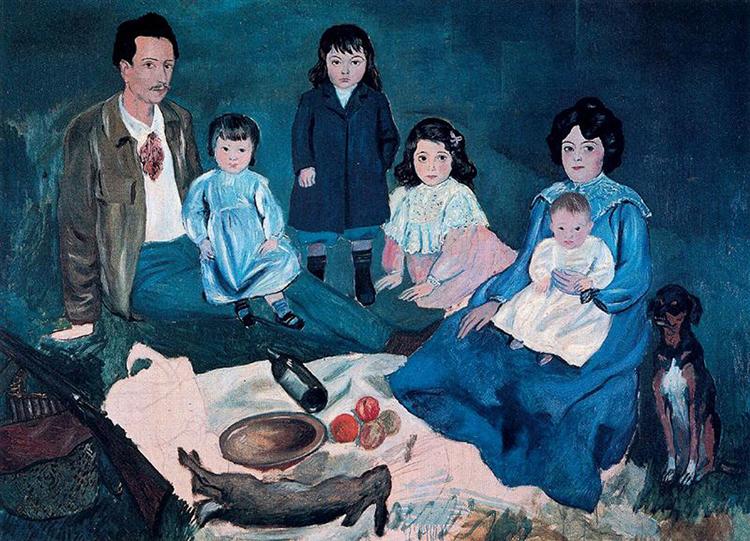Without stronger kin, the American way grows fatally weak.
Home Life Matters

We must wrest our families back from our decadent overlords.
I’m not sure there’s ever been a more discouraging time to write about the family in American life than today. Fertility has jumped off the cliff, yanking marriage rates with it. Many who rode out the COVID-19 spike with their families became unwitting sources of infection for the same. The aged perished without the comfort of their children and grandchildren. Breadwinners watched their livelihoods dissipate, a recipe for yet more marital tension and fertility decline.
The year 2020 has become the year of disruption. Politics, pandemics, and protests have interrupted the normal proceedings of family life. Constant upheaval, from whatever source, is destabilizing and demoralizing. (That may be the point.) The average American, however, longs for a settled and stable pathway to flourishing.
Tom Klingenstein pines for something like this, which he dubs “the American way of life.” It is at heart a conservative mission, but one seeking something besides freedom and limited government, principles that sadly now seem more anachronistic every month. By “the American way of life,” Klingenstein means “securing the conditions necessary to pursue a worthy life.”
But the pathway to a worthy life has been obstructed by injustice and inequality for many Americans. We owe each other an equal shot at living a worthy life. That doesn’t mean every version of happiness is equally worthy, though. Nudging us all toward particular visions of a worthy life is what good governments do, Klingenstein observes. But insofar as a worthy life was once thought to involve (or be aided by) marriage, family, and children for most, American government at all levels now takes a bipartisan pass on such endorsements.
Politicians fear being called “controversial,” a now-distorted and weaponized term. As a result, Republican politicians are increasingly uninterested in being portrayed as defenders of marriage and family, unless they saturate it with qualifiers. But in reality, endorsing marriage is not controversial, lamenting divorce is not cruel, recognizing sex distinctions is not unscientific, and childbearing is not a dirty word. Each reflects the good, the true, and the beautiful. To abandon marriage and family is to inflict a mortal wound on the nation.
The Bedrock of Trust
I was struck anew by the gravity of our situation the other evening as I drove away from my brother’s home in the country outside a small town in Michigan. Two families—three generations—had gathered around an outdoor fire pit, reflecting, reminiscing, and enjoying one another’s company. As I drove through the small town later that night, I happened by an old house, suffering from wear, and glimpsed three young adult men gathered around a table to drink.
I know nothing of those men’s relationship or the subjects of their evening’s conversation. But what struck me by comparison is the fragility and vulnerability of a society whose men and women do not make a way of life together.
My brother and his family had gutted out a challenging year of economic struggle, even before the coronavirus took some more. But a marriage is a relationship of interdependence and is meant to be a load-bearing structure, strong enough to withstand forces bent on its destruction. Families are what enable Americans to be less dependent and more interdependent—engaged with each other but not subservient to any authority (whether loved or loathed). Without such families, generalized social trust erodes.
If a genuine revival of marriage and family were to materialize, what ought to characterize it? I’m not here to offer idealism. The times call for a sober, measured realism. What options do we really have in a free market system whose national storytellers—Hollywood, higher education, and the mass media—seem bent on alienating men, women, and children from each other and selling them on the “freedom” of creating, sustaining, and expressing their own personal culture?
Some pro-family changes may simply occur through no effort of our own. If indeed our current pandemic shifts jobs away from city centers over the long term, this portends good news for housing affordability, which in turn should—in theory—make it easier for families to purchase homes that are more friendly to bank accounts and paychecks than those in urban cores.
But would this prompt a new surge in marriage? I doubt it. At best, we’re talking about how stable work in more affordable locales could yield a modestly greater likelihood of doing something (getting married) that fewer and fewer people are doing every year anyway.
A Road to Family Renaissance
One way to indirectly facilitate and support existing marriages (and childrearing) is through “wage subsidies,” wherein workers would receive, for example, half the difference between the market wage (what they’re paid) and the target (or living) wage, with the government depositing the subsidy amount directly into paychecks.
Wage subsidies defy conventional labeling as conservative or progressive. Oren Cass argues for them in The Once and Future Worker (2018) as a substitute for the tax windfalls governments often provide to companies willing to relocate to their state or country (in return for the promise of good jobs).
A consistent wage subsidy is far more helpful than a tax credit “paid out” only once a year. Such a subsidy diminishes inequality—without government interference or bloat—by diverting tax revenue from higher earners and directing it straight to the paychecks of lower earners. It enables the idea of earning a living wage—a moral notion many of goodwill can agree upon. But so far, an American wage subsidy only exists in theory.
Other ideas are less about policy and more about cultural resistance. It’s not difficult to imagine some wise, humane steps by which families can resist those monocultural forces bent on eroding their home. Linger over the family dinner table—with no devices. Read more. Read aloud. Pray aloud. Sing more. I can think of nothing so unbridled in its unitive power as being musical together. Hike with family and friends. Look around you (more than you look down).
Think such advice is naïve in today’s fast-moving society? I agree, given how penetrated we have been by market mentalities and mediating devices. But our most basic relationships help make us human. We have traded away our birthright for a “mess of pottage,” (dis)satisfying ourselves with cheap distractions. It’s long past time we took marriage and family back from such overlords. We should expect our leaders to honor and defend our most elemental human unions.
The American Mind presents a range of perspectives. Views are writers’ own and do not necessarily represent those of The Claremont Institute.
The American Mind is a publication of the Claremont Institute, a non-profit 501(c)(3) organization, dedicated to restoring the principles of the American Founding to their rightful, preeminent authority in our national life. Interested in supporting our work? Gifts to the Claremont Institute are tax-deductible.
You can’t preserve something that no longer exists.
It’s time for conservatives to get real.
Individual liberty can’t stand on its own.
It’s a mistake to dismiss the ideological dimension of the culture war.
The politics of nostalgia can’t meet the moment.






